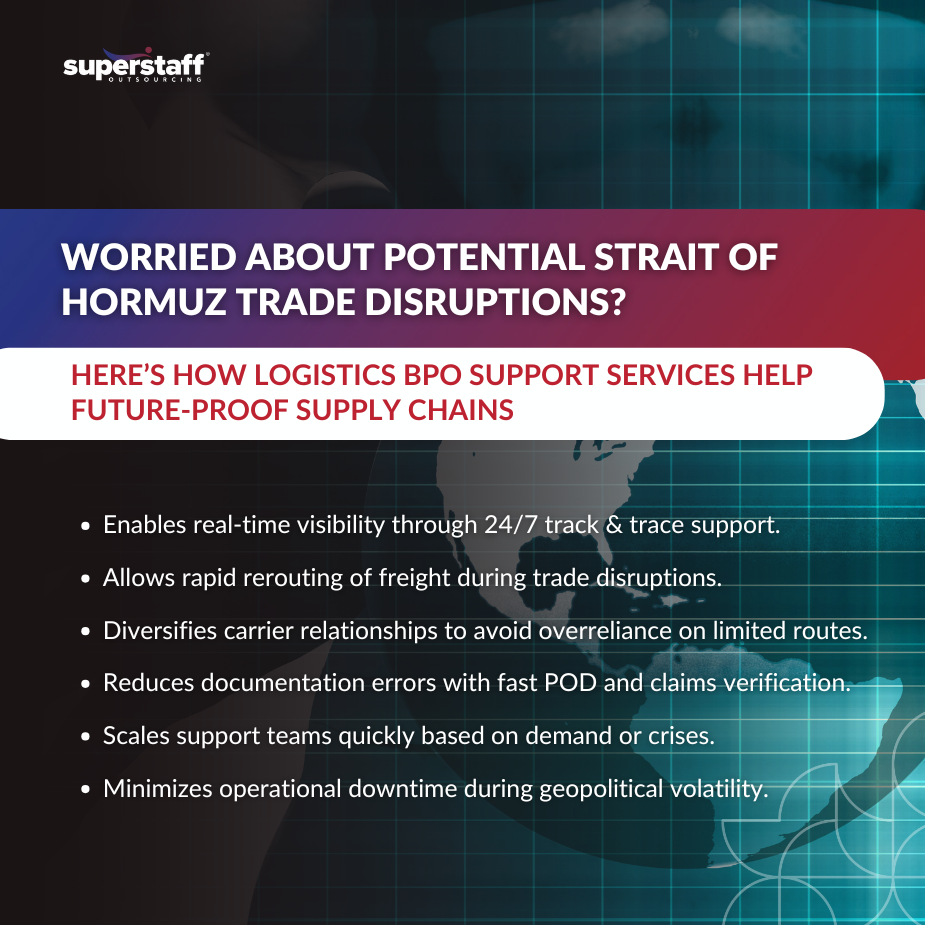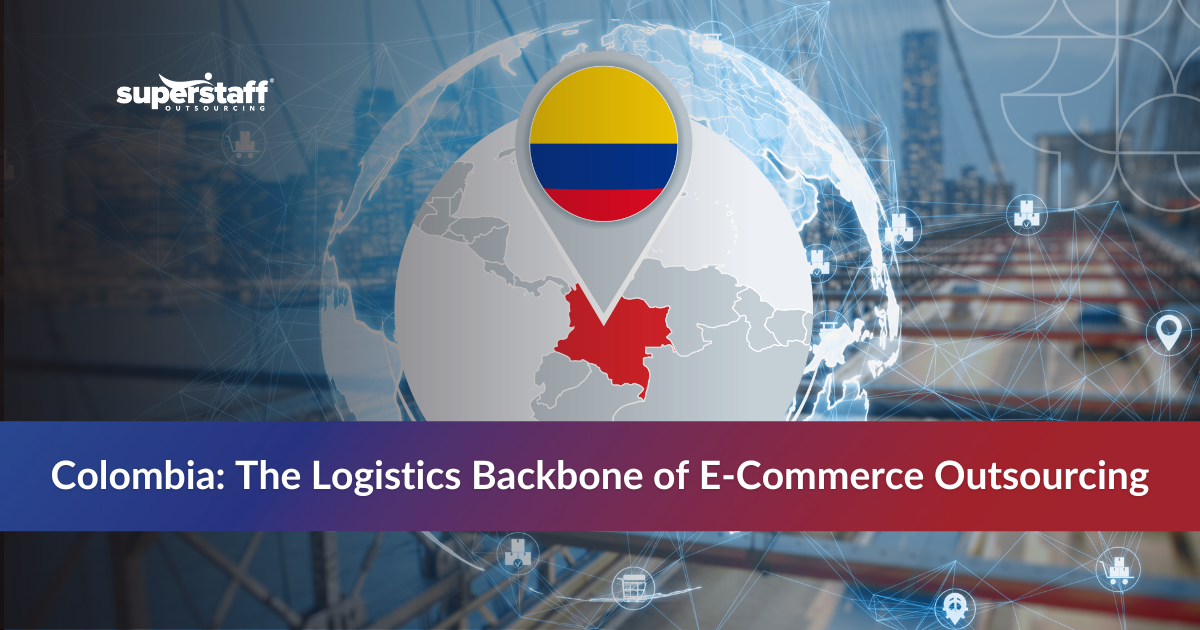
The Strait of Hormuz is more than just a narrow waterway—it’s a global chokepoint that holds immense economic power. Every day, millions of barrels of oil, natural gas, and vital goods pass through this narrow stretch between the Persian Gulf and the Arabian Sea. In fact, more than 20% of the world’s petroleum trade flows through it. That’s why even a brief disruption—whether from military tensions, blockades, or attacks on commercial vessels—can send shockwaves through global markets and paralyze supply chains from Asia to North America.
For businesses that rely on timely shipments and stable transportation lanes, these disruptions highlight a growing need for greater agility, visibility, and contingency planning. Traditional logistics models, built on predictability and efficiency, are no longer enough. In today’s increasingly volatile landscape, companies must rethink how they manage fulfillment, carrier relationships, and documentation—especially when choke points like the Strait of Hormuz are at constant risk.
This is where logistics BPO support services come in. By outsourcing essential functions such as dispatching, track and trace, carrier coordination, and proof-of-delivery verification, companies gain the flexibility and responsiveness needed to weather disruptions and pivot quickly. In this blog, we’ll examine how BPO logistics support helps businesses future-proof their operations, reduce risk, and maintain service continuity even when global trade routes face uncertainty.
Understanding the Geopolitical Importance of the Strait of Hormuz
Trade through the Strait of Hormuz is vital for global commerce, especially for energy and industrial shipping. The waterway connects major oil producers in the Middle East to international markets. Any threat to the strait immediately sends ripples through the shipping industry.
Geopolitical tensions in the Middle East, particularly involving Iran, have historically disrupted the flow of goods. There have been multiple incidents of tanker seizures, drone attacks, and threats of closure that have heightened global anxiety.
- Historic and recent blockades, including the 2019 incidents involving oil tanker attacks, have underscored the strait’s vulnerability.
- Oil and gas dependency for Western and Asian markets means that even non-energy industries are indirectly affected by delays and volatility.
- The ripple effect includes skyrocketing freight insurance premiums, congestion at alternate ports, and tighter shipping capacity worldwide.
In the face of this volatility, businesses can no longer rely on static logistics strategies alone.
How Trade Disruptions Are Exposing Weak Links in Global Supply Chains
Delays, reroutes, rising costs and other trade and supply chain disruptions are becoming the new normal. Companies that depend on lean operations and just-in-time delivery are now facing more frequent stockouts and fulfillment issues.
Even companies not directly sourcing from the Gulf are feeling the pinch, as delays in one region create domino effects across the supply chain.
- Port congestion occurs as vessels reroute to avoid the Strait of Hormuz, overwhelming alternative entry points.
- Increased shipping costs from insurance premiums and longer routes get passed on to consumers, shrinking profit margins.
- Strain on lean inventory systems leaves businesses exposed when shipments are delayed or lost.
To stay competitive, companies are turning to logistics BPO support services for added flexibility and faster response times.
What Is BPO Logistics Support and Why It Matters Now More Than Ever
Logistics BPO support services offer critical operational backup during times of global uncertainty. These services go beyond cost-cutting measures; they provide the adaptability and bandwidth companies need to maintain operations despite disruption.
These support roles include:
- Dispatch support to ensure optimized routing
- Carrier coordination to diversify shipping options
- Tracking and tracing to monitor goods in real-time
- Claims and proof-of-delivery (POD) verification to ensure financial accuracy
With 24/7 availability and global time zone coverage, logistics BPO partners help fill gaps quickly. Teams are trained on Transportation Management Systems (TMS) and other freight technologies, ensuring they can plug into your existing workflow seamlessly.
Let’s dive deeper into how specific logistics support roles are driving this shift.

Track & Trace Teams: The Real-Time Advantage in a Delayed World
Visibility is currency in today’s disrupted shipping environment. Track & trace teams play a crucial role in providing live shipment updates and proactive alerts, allowing logistics managers to make informed decisions.
These teams:
- Reduce failed deliveries by proactively contacting carriers or clients before issues escalate
- Improve ETA accuracy for both internal and customer-facing systems
- Strengthen customer communication with timely, verified updates that build trust
Without this layer of visibility, businesses are flying blind. And in today’s world, that’s a risk few can afford.
Beyond real-time tracking, proactive carrier management is essential to route adaptability.
Carrier Sales and Dispatch Support: Diversifying Freight Channels in Crisis
When preferred lanes become compromised, carrier sales reps and dispatchers step in to manage the chaos. Logistics BPO support services ensure your team always has a Plan B—and C.
Here’s how:
- Maintain and grow carrier relationships, creating a broader pool of transport options during disruptions
- Manage loads across regional lanes, balancing capacity and speed
- Offshore dispatchers reroute freight quickly and efficiently, ensuring minimal delivery disruption
In times of crisis, these roles are indispensable. The ability to reroute freight in real time is what keeps businesses running.
And while moving freight is one part of the equation, verifying successful delivery is just as crucial.
POD and Claims Verification: Reducing Risk Through Fast Documentation
In an era of disrupted deliveries and increasing claims, documentation is everything. Agents providing logistics BPO support services handle the paperwork so your in-house team can focus on the bigger picture.
- Validates completed deliveries, ensuring billing and inventory accuracy
- Accelerates claim filing, reducing cash flow delays
- Ensures compliance for cross-border shipments, reducing regulatory risk
This function becomes even more important when rerouted shipments increase the chance of miscommunication, late arrivals, or misplaced goods.
These efficiencies are not just emergency responses—they’re part of a smarter, scalable supply chain model.
Offshore Logistics Support as a Long-Term Resilience Strategy
Future-proofing means preparing for volatility, not avoiding it. Outsourcing logistics support is no longer just about cost efficiency. It’s about building a resilient infrastructure.
- Scale headcount on demand to meet seasonal or crisis-related surges
- Leverage TMS-trained offshore teams without the delays of in-house onboarding
- Distribute operations globally to reduce overreliance on a single region
Companies that outsource to the Philippines benefit from a highly educated, English-proficient talent pool with proven expertise in back-office logistics and supply chain support. Whether you need a single dispatcher or a full team of 24/7 track & trace agents, the Philippines offers reliable, cost-effective coverage.
SuperStaff has been supporting logistics firms in exactly these ways.
Why Partner With SuperStaff for Logistics Support
SuperStaff understands the pressure logistics teams face in uncertain times. That’s why we build agile support teams that respond to real-world disruption—not just hypothetical models.
Our capabilities include:
- Dedicated teams with experience in freight, dispatch, and POD verification
- Quick scale-up for peak seasons or emergency response
- Cultural compatibility and strong English communication for seamless collaboration
As the impact of Strait of Hormuz tensions on global shipping continues to unfold, companies need partners who can act fast, communicate clearly, and deliver consistently.
As global disruption becomes routine, offshore partnerships will be the backbone of supply chain continuity.
Future-Proofing Supply Chains With Logistics BPO Support Services
As trade routes like the Strait of Hormuz remain unstable, companies must rethink logistics resilience. Static models no longer work in a dynamic, crisis-prone world.
Supply chain outsourcing enables businesses to adapt quickly, reduce overhead, and maintain service levels even during global disruptions. Through logistics BPO support services, companies gain access to trained professionals, advanced tools, and round-the-clock operations.
Looking to shield your logistics operations from global uncertainty? SuperStaff provides the offshore logistics support your business needs to thrive—even in the face of disruption. Let’s talk about building your resilient supply chain today.






